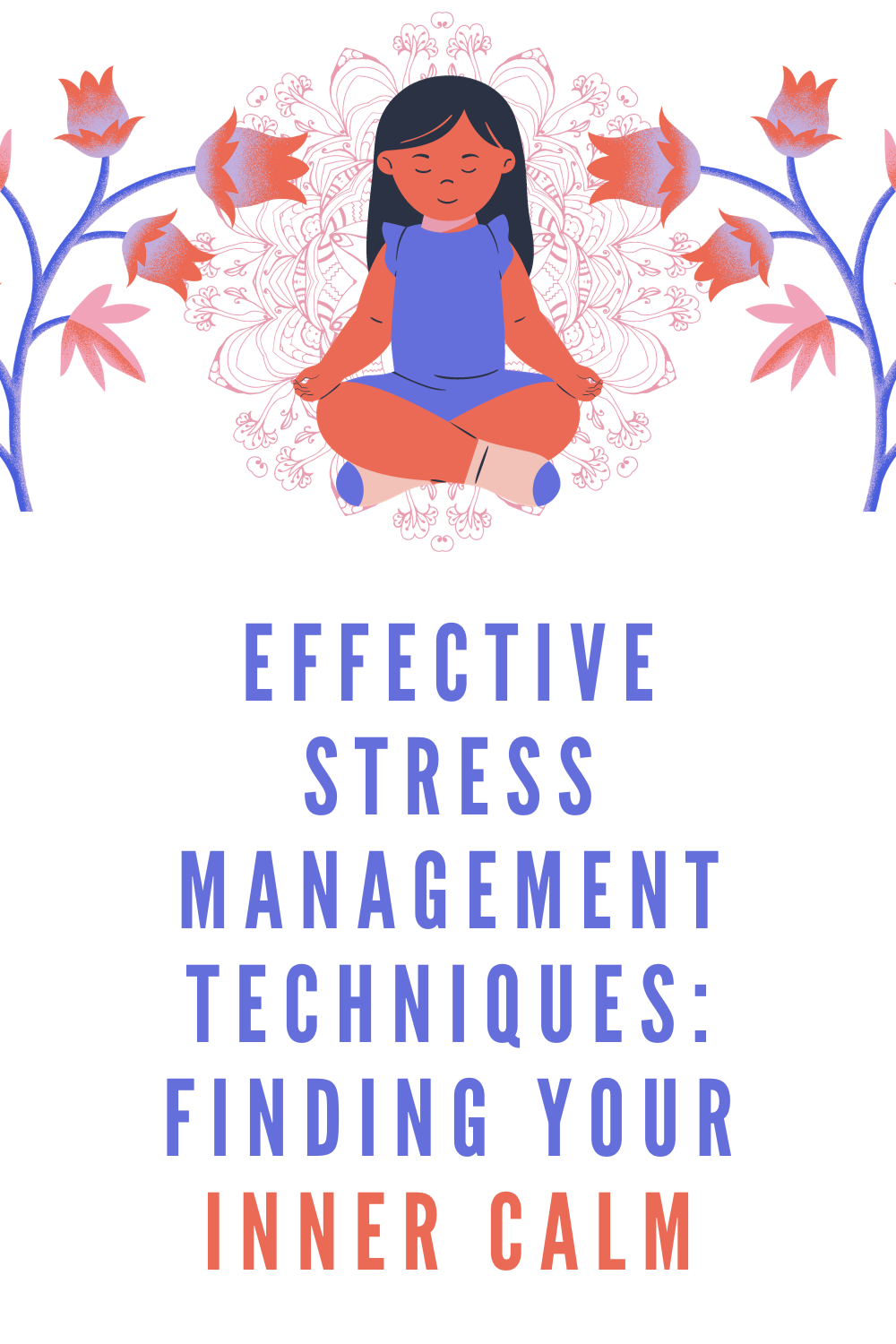
Stress is an inescapable aspect of life that can significantly impact our mental and physical well-being. Whether stemming from work-related pressures, personal conflicts, or unforeseen life events, stressors come in various forms. The good news is that there exist highly effective stress management techniques capable of helping us regain our inner equilibrium and confront life’s challenges with resilience. In this blog post, we will explore a range of proven methods for managing stress effectively and enhancing the overall quality of life.
—
Understanding Stress:
To embark on our journey of effective stress management, it is vital to first grasp the nature of stress and its impact. Stress is the body’s natural response to perceived threats or challenges. While acute stress can serve as a motivator, enabling peak performance under pressure, chronic stress can have detrimental effects on our health. Common stress-related symptoms encompass anxiety, irritability, fatigue, and physical manifestations such as headaches and digestive disturbances.
Identifying Your Stressors:
The initial stride toward successful stress management is the identification of the specific stressors afflicting your life. These stressors may encompass anything from workplace pressures to personal conflicts or financial concerns. Allocate time for introspection and pinpoint the sources of your stress. Awareness is the linchpin for finding effective solutions.
Healthy Lifestyle Habits:
1. Diet: Nourish your body with wholesome foods, steering clear of excessive caffeine, sugar, and processed items that can exacerbate stress.
2. Exercise: Engage in regular physical activity, as it releases endorphins, the body’s natural mood elevators. Aim for at least 30 minutes of exercise on most days.
3. Sleep: Elevate the importance of sleep by adhering to a consistent sleep schedule and crafting a bedtime routine conducive to relaxation.
Relaxation Techniques:
1. Deep Breathing: Integrate deep breathing exercises into your daily routine to soothe your nervous system. Inhale deeply for a count of four, hold for four, and exhale for four.
2. Meditation and Mindfulness: These practices are effective in grounding you in the present moment and reducing anxiety.
3. Progressive Muscle Relaxation: Alleviate physical tension by methodically tensing and then relaxing each muscle group in your body.
4. Yoga and Tai Chi: These mind-body practices amalgamate movement and relaxation to alleviate stress.
Time Management and Organization:
Effective time management can preempt overwhelming stress:
1. Prioritize Tasks: Identify the most critical tasks and address them first.
2. Create a Schedule: Utilize calendars or apps to structure your time and establish attainable objectives.
3. Set Boundaries: Embrace the power of saying no to prevent overcommitting.
Social Support and Communication:
Do not hesitate to seek solace in friends, family, or a professional:
1. Talk About It: The act of sharing your feelings with a confidant can provide relief and emotional support.
2. Build a Support Network: Foster relationships with individuals who comprehend and validate your experiences.
Stress Reduction Activities:
Engage in activities that bring you joy and relaxation:
1. Art and Creativity: Drawing, painting, or crafting can serve as therapeutic outlets.
2. Music: Immerse yourself in music that resonates with you, an instant mood enhancer.
3. Nature: Dedicate time to the outdoors to reconnect with the calming influence of nature.
4. Hobbies: Invest time in hobbies and interests that evoke happiness.
Mindset and Cognitive Techniques:
1. Cognitive Reframing: Challenge negative thought patterns and substitute them with positive or neutral ones.
2. Positive Affirmations: Cultivate self-compassion by daily repetition of positive affirmations.
Seeking Professional Help:
If stress significantly impinges upon your daily life, seeking professional support is a responsible choice:
1. Therapy and Counseling: Mental health professionals can provide guidance and strategies for effective stress management.
2. Support Groups: Joining a support group facilitates connection with individuals confronting similar challenges.
Incorporating these tried-and-true stress management techniques into your daily life can empower you to regain control, reduce stress, and ameliorate your overall well-being. It is imperative to remember that managing stress constitutes an ongoing process, and seeking help when needed is a commendable step. By nurturing your mental and physical health, you can rediscover your inner calm even amidst life’s most formidable trials.
We invite you to share your preferred stress management techniques in the comments section below. Let us collectively provide support and insights to guide each other on the path to a stress-free life.


